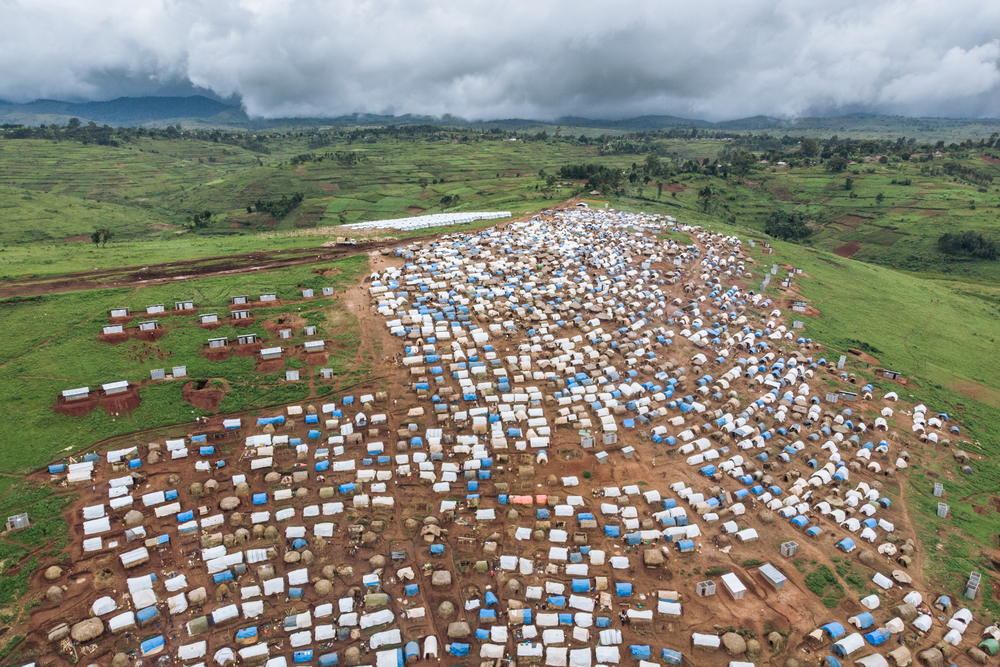Ituri, Democratic Republic of Congo: Hundreds of thousands uprooted by conflict in desperate need of assistance
The massacres between the Hema and Lendu communities that so violently marked the history of this province in the northeast of the Democratic Republic of the Congo (DRC) in the early 2000s reignited in December 2017. The United Nations Office for the Coordination of Humanitarian Affairs (OCHA) estimates that more than a million people have been displaced by the violence since 2017, although it is almost impossible to know the exact figure due to the frequent population movements. Today, approximately 200,000 people have spontaneously gathered and settled in sites where they crucially lack essential means such as water, food and health care. Hundreds of thousands of others are living with host families.
Dozens of makeshift camp sites have sprung up in the hills of Nizi. They can be glimpsed from each bend of the dusty roads winding through the area. One can guess how long the sites shave been there based on how they have bene built: the most recent sites only have straw huts while more established settlements have some sanitary facilities such as toilets and sometimes tarpaulins to protect the shelters from the rain. The most fortunate ones live in buildings built by humanitarian agencies. Still, none of the sites cater sufficiently meet the needs of the displaced; they lack food, clean water and sanitation. People are developing preventable illnesses such as diarrhoea and malnutrition while other diseases, such as respiratory infections and malaria, can also be directly linked to the poor living conditions. Thousands of children are affected and killed by these illnesses. According to recent surveys carried out by MSF, the mortality rate is three times above the emergency threshold among children under the age of five who arrived during spring 2019.
Community health posts have been set up by MSF in 19 of 24 camps in the area. They are run by a member of the community who has been trained to recognise the most common illnesses. They measure the children’s mid-upper arm circumference using so-called MUAC tapes to detect malnutrition, they carry out rapid tests for malaria, and check for fever and diarrhoea. They have a stock of easy-to-use medicines such as Paracetamol and antimalarials which they use to provide initial treatment, and if needed, refer sick children to one of the seven health centres supported by MSF. There is an MSF nurse working in each health centre to assist the local health staff. From there, seriously ill children are referred to Nizi General Referral Hospital for hospitalisation and specialist care. At Nizi Hospital, MSF supports the ministry of health-run intensive care and resuscitation unit, the paediatric ward, the nutrition and post-natal units. The main aim is to treat children as early as possible to avoid medical complications. Given the huge needs in the region, the occupancy rate of the paediatric ward has often gone over 100%, requiring MSF to increase the capacity of the inpatient department. Today, the paediatric ward has a total of 56 beds.
Since December 2019, MSF has scaled up its activities in order to respond to the needs of the displaced. However, the current level of assistance is not sufficient, and people are still living in extremely poor conditions. The humanitarian community in Ituri needs to urgently address this crisis and scale up assistance.
MSF is providing medical care to displaced persons, working to improve access to clean water, and distributing mosquito nets and relief items at 34 sites in the health zones of Nizi, Drodro and Angumu.
***
Photos @Alexis Huguet

